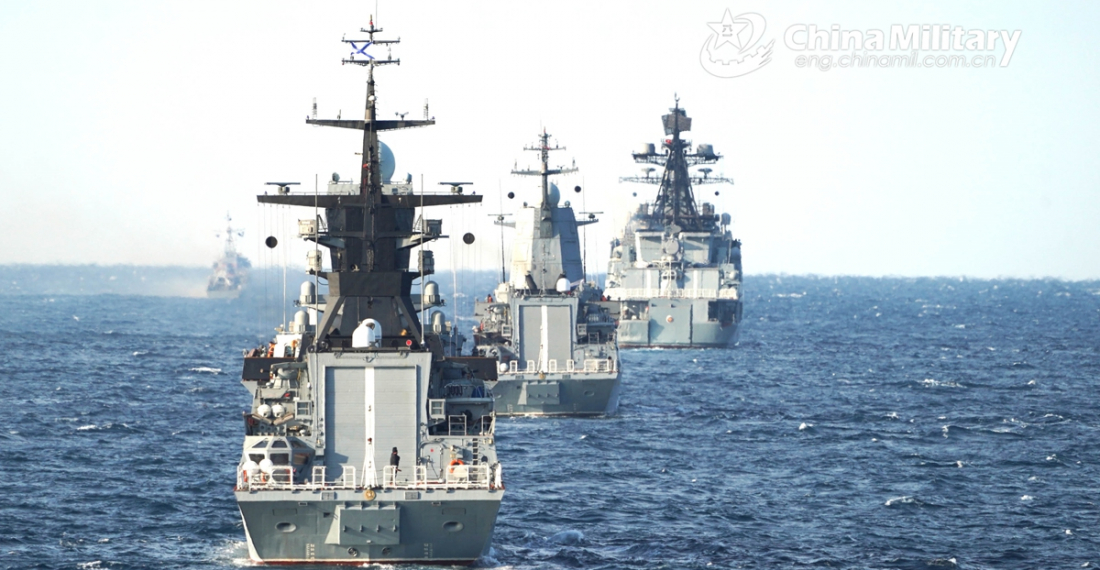The Iranian, Chinese and Russian navies will begin joint naval manoeuvres in the northern Indian Ocean waters on January 21, the semi official Iranian news agency ISNA reported on Thursday (20 January), citing the Iranian army’s press office.
The drills will practice various maneuvers, in particular, rescuing a ship swept by fire, releasing a captured vessel and firing against targets. The drills are aimed at strengthening the security of international sea routes, fighting piracy and maritime terrorism and exchanging experience, the news agency reported.
Russia’s Pacific Fleet reported on January 18 that the Fleet’s naval group made up of the Guards Order of Nakhimov missile cruiser Varyag, the large anti-submarine warfare ship Admiral Tributs and the large sea tanker Boris Butoma had arrived at the Iranian port of Chabahar for the joint drills of the Russian, Iranian and Chinese navies.
The Pacific Fleet’s naval task force departed from Vladivostok and embarked on its long-distance deployment several days before the new year 2022.






